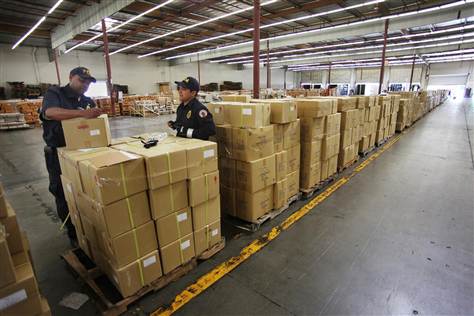Implementation of the Safe Food for Canadians Act has been somewhat delayed, but January 1st of next year has now been fixed as the date when it will come into full force. The Act, passed after the 2012 XL Foods beef recall, is administered by the Canadian Food Inspection Agency (CFIA) and applies to all foods that are imported, exported, or traded between provinces.
Importantly, companies that import food will now be liable for its safety. For their part, food exporters need to be aware that CFIA will require their goods to comply with the standards of the destination country, although the agency has yet to finalize how this will be implemented.
The Act also aims to systematize food trading practices under a CFIA regulatory scheme. Changes include mandatory licensing, traceability requirements, the need for a detailed food safety plan, and new inspection practices.
Any company trading food across a national or provincial border will need a CFIA license, which will be valid for a period of two years and may be obtained through CFIA’s website. Only one license per company is necessary, even for companies with facilities in multiple locations and those which handle several categories of food products.
Food companies will need to maintain standardized documentation showing ingredients and the movement and storage history of each food product they handle. The purpose of this requirement is to enable more rapid food recalls, and thus companies must keep these records up-to-date and be ready to turn them over to CFIA within a day of any request.

In addition to that traceability documentation, companies must have a Preventive Food Safety Control Plan (PFSCP) in place to lessen the likelihood of a recall being necessary to begin with. The PFSCP must be in writing and address basically everything that could have an effect on food safety, including facilities and equipment for food processing/handling/storage/transport, pest control and sanitation methods, and food safety training for workers. After developing a PFSCP, a company must demonstrate to CFIA’s satisfaction that the plan is workable in light of the company’s particular circumstances.
A good record of compliance with already-existing CFIA regulations will probably go a long way towards convincing the agency that a company will be able to adhere to the new requirements. Also, CFIA is planning to step up its auditing activities to confirm that correct procedures are being carried out. Thus, companies which have run into trouble with CFIA before would be well advised to make sure they have everything in order and properly documented before the beginning of next year.
That’s still six months away right now, but getting ready for the changes is likely to be time-consuming and complicated, and with fines of up to $25,000 per violation on the table, it will pay to be prepared. A reputable customs broker with experience in food import/export will be able to help your company plan for full compliance.

 Payment
Payment  My Account
My Account